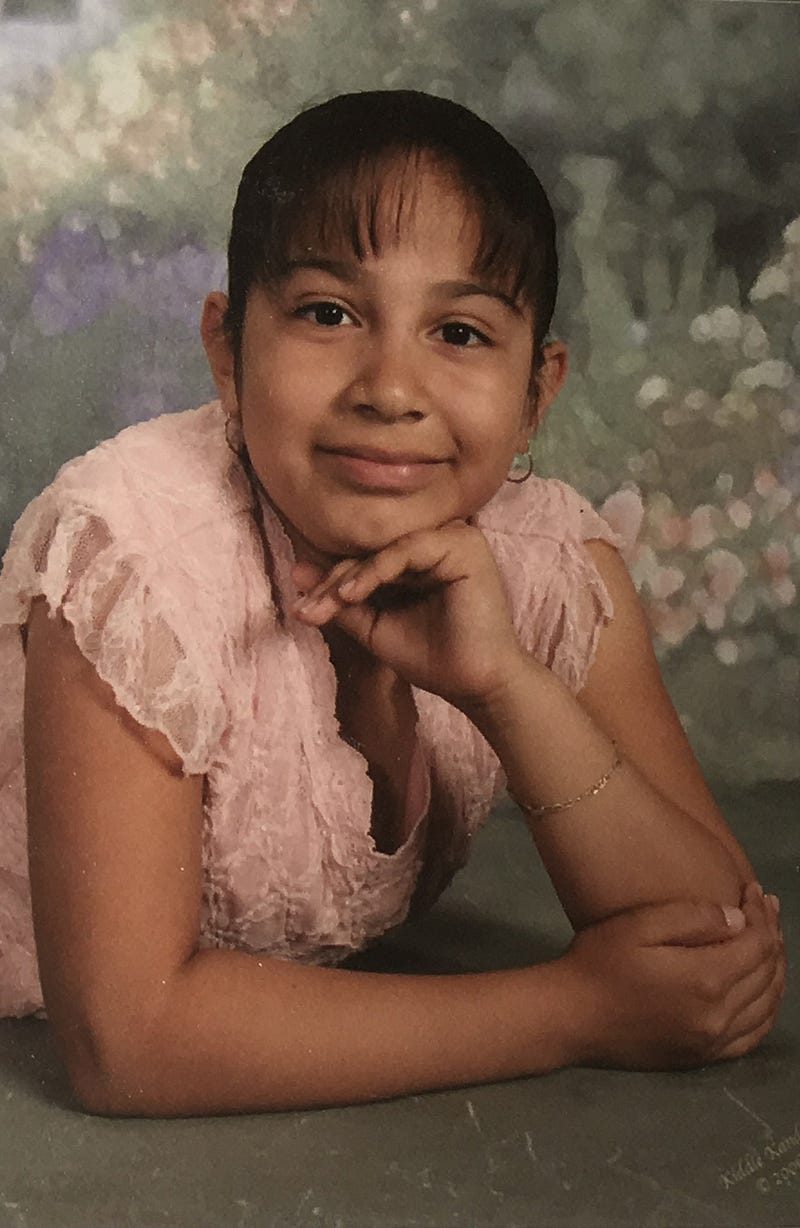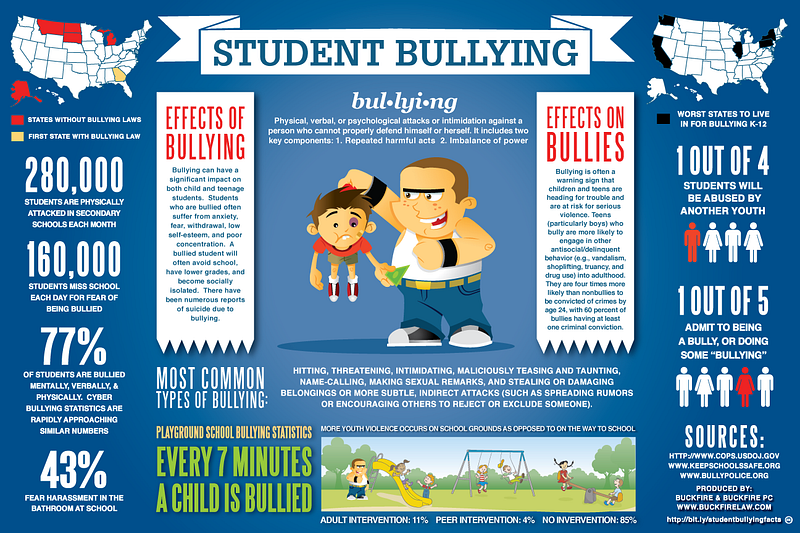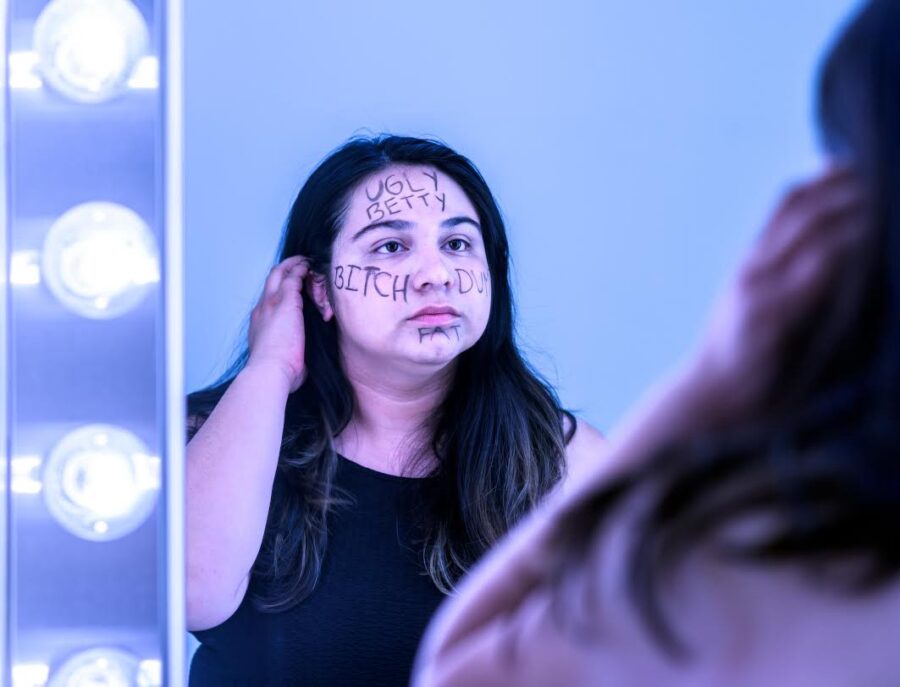I’m Not Ugly Betty Anymore
But the scars of bullying and name calling remain.
I can still remember the place and the small details of the day my world changed for the worst. It was first recess of the day and I was counting to 100 so I could get my turn on the swings. My bully came up to me and seized his opportunity. “Hey there, Ugly Betty,” he said.
I stopped counting and stared at him for what felt like ages. I had never felt ugly before in my life, but that didn’t mean I thought of myself as beautiful either. I was just me. I was Kenya, a simple 8-year-old girl who wore glasses, kept my hair loose, and liked to laugh at knock-knock jokes.

“Yeah, Ugly Betty. You have her frizzy hair, those stupid glasses, and you’re ugly. All you need are your braces to be the perfect Ugly Betty.”
I had been baptized for life, not with a religion, but with a name.
Throughout the next decade, my mom would set appointments with an orthodontist after my dentist insisted I needed braces. “Her teeth are incredibly crooked; two years maximum will fix those right up.”
I wouldn’t show up for my appointments. I’d fake sick, say I had a project due, class, anything. I would rather suffer with this cosmetic fault than fit into the Ugly Betty mold. And twice a year, I’d get a disappointed look from my dentist when I’d tell him I missed my appointment but promised to attend the next one. But we both knew I wouldn’t.
In pictures, I don’t show my teeth, and since the age of 13, I started wearing contacts. I straightened and drowned my hair in hairspray for the rest of elementary and most of middle school. Yet, despite all my efforts, the teasing and taunting continued. If not the Ugly Betty name, for my weight.
I remember trying to retaliate my bully’s comments by saying that at least Betty turned out beautiful in the end. Without missing a beat he replied, “Yeah, but you’ll always be ugly.”
What to this boy was just a fun game of keeping the “cool kid” position on the playground, his teasing and name calling hurt me enough that to this day, I can’t take a compliment. I’ll brush it off as kindness or pity, but never a genuine compliment. It’s even harder for me when a guy shows interest. I always wonder if they are doing it as a cruel joke, or maybe they’re out of options. Or perhaps I’m just the funny fat friend. When I look in the mirror, all I can hear is the constant snickering of a 9-year-old telling me that I’ll forever remain Ugly Betty.
Bullying is not just something that happened to me. It is a national problem. According to dosomething.org, an organization dedicated to changing social behaviors that affect today’s society, over 3.2 million students are bullied each year. Of those 3.2 million students, only 17 percent of American students reported being bullied two or three times a month. So, realistically speaking, the actual number could be a lot higher when taking into consideration the amount of cases that go unnoticed or unreported.
Matthew Dierksen-Zimmerman, a 27-year-old communications major, was one of those 3.2 million students. As a redhead, he was singled out in his elementary school and turned into the target of bullies.
“People called me carrot top, flamer…the usual kind of stuff. As I got older, they got a little more colorful. One that was about my hair was fire-crotch.”
Dierksen-Zimmerman said he was stripped of his individuality when he, along with two other redheads attending the same elementary school, were given the same generic insults and his name was swapped with another child’s.
“They did call me by the name of another redhead that no one liked. And in fourth and fifth grade, I was often mistaken for another red headed student,” he said.” A lot of people didn’t remember my name. I was just “the red head.”
The bullying progressed so bad for Dierksen-Zimmerman, that during his middle school years, he contemplated dying his hair brown in order to remain as close to his original hair color as possible to take away some of the shock factor that would come with the drastic change. It wasn’t until high school that he dyed his hair black twice, much to his mother’s disapproval.”
It looked awful,” he said. “It was perfectly dyed black all over, but you could tell it was a dye job. My eyebrows were still red because I didn’t want to dye those. I didn’t trust myself.”
Dierksen-Zimmerman said that people would still make comments about his hair color. “I didn’t spare myself any torment, it was just a different kind of torment,” he said.
Today, Dierksen-Zimmerman looks back and questions why he dyed his hair back then. “I love my hair color. I’m positively thrilled with it.”
Dierksen-Zimmerman said that the experience he had as a bullied child helped him become the person he is today, and although he did not appreciate the comments then, they don’t bother him anymore.
“As corny as it sounds, it gets better. You’ll grow up and you’ll realize that the part of you that kids tormented you the most, is probably your best feature. You’ll learn to love yourself. From one former bullied child to another, hang in there.”

And it does get better, not all at once, but slowly. My elementary and middle school were combined into one academy meaning I was forced to co-exist with my bully up to eighth grade. During this time period, my grades were low, which according to stopbullying.gov, is a result of being bullied. Students who are bullied often have low test scores and miss class.
When I moved out of the district to attend high school, I was determined to leave behind the Kenya that had been bullied. To some extent, I did. My grades improved, I didn’t miss class as much as I had in my elementary/middle school years, and I decided to work on myself.
It’s now 10 years later and I’m still working on myself. My self esteem has begun to rise, and even though it’s still at a low level, I don’t hate myself as much as I used to. Compared to middle school, I have come to accept myself with my natural hair and glasses. I apply a small amount of makeup and try to look decent on a regular basis. Waking up and getting ready is still difficult because I have to keep myself occupied in order to avoid thinking about the insults that I see every time I look at myself in the mirror.
The end goal of my battle is to prove to myself, that although my bully’s words left a scar, I won’t let it bring me down. I still look at myself in the mirror and often ask myself, “Am I really that ugly?” I have to do a double-take and remind myself that he shouldn’t have this control over my life. No one should have this amount of power over a stranger’s life.
I think back to that day when I didn’t get to ride the swings because I just wanted to break down and cry. Instead of standing up for myself I stood there and took it. For five years I did nothing, but then I remember that I am not the same person anymore.







